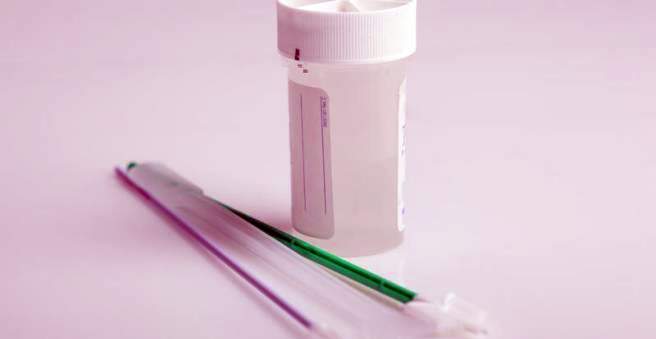The HPV test detects infections with human papillomavirus (HPV) in women. The goal is to identify high-risk HPV viruses that increase the risk of cervical cancer. However, the test is not an alternative to cancer screening. He only shows the viruses, tumor cells are not detected. The HPV test costs are not always covered by health insurance. Read more about the HPV test here.

How does the HPV test work?
The HPV test – similar to the PAP test – a smear taken from the cervix and from the opening of the cervix. In the laboratory, this is examined for HPV viruses. There are several test methods available for the HPV test: the polymerase chain reaction and hybridization methods such as hybrid capture 2.
Polymerase Chain Reaction (PCR)
In this HPV test procedure, the genetic material of the HPV viruses detected in a cell sample is multiplied by means of the so-called polymerase chain reaction (PCR). Subsequently, the exact virus type can be determined.
Hybrid Capture 2 (HC2)
Extensive laboratory procedures are used to identify 18 HPV types in the smear with this HPV test: 13 high-risk HPV types and 5 low-risk HPV types. The test result indicates only the group. Which representative of the high-risk or low-risk group can be found exactly in the sample can not be said with this HPV test.
When will the HPV test be performed?
Young women should go to the annual check-up with their gynecologist no later than the age of 20 years. Part of this regular investigation is the so-called cytological PAP test (named after the Greek physician Papanicolaou) for the early detection of cervical cancer. From the age of 30, the HPV test can additionally be performed. In recent years, HPV infections are common, but usually disappear quickly. Therefore, the HPV test is recommended only from the age of 30 years. Last but not least, less women become unnecessarily insecure.
Regardless of a woman’s age, an HPV test may be useful if the Pap test provides unclear feedback. In addition, the test is often performed after the surgical treatment of cervical precancerous lesions (cervical intraepithelial neoplasia, CIN) in order to test the therapeutic outcome.
HPV test before HPV vaccination?
Carrying out an HPV test prior to HPV vaccination is not recommended. In fact, the available test methods (HC2) only detect infection with HPV viruses from the high-risk or low-risk group; the exact type can not be identified. Even with existing HPV-type infection, the vaccine can still protect against contagion with other types.
HPV test: The result
A negative HPV test indicates that there is currently no HPV infection. However, it could already have existed earlier such an infection, which is meanwhile healed.
If the HPV test is positive, this is no cause for concern. Most women eventually become infected with HPV, but relatively few develop cancer. Nevertheless, the genital mucosa should be rechecked after 12 months and the HPV test repeated.
Especially with increasing degeneration of the cells (Pap IIw-III), the changes are controlled at closer intervals. If the test result is also high-risk HPV positive, the period to the next examination is reduced to three to six months.
HPV test: Men
If the partner is ill with HPV, men should be thoroughly examined by a urologist or dermatologist. An HPV test is not performed on them. The reason: The currently available test methods can detect an HPV infection well on the uterine lining, but poorly on other parts of the body (such as the penis).
HPV test: cost
The HPV test costs in the context of cancer screening are not covered by the statutory health insurance. The investigation applies here as desired achievement (individual health achievement, IGeL). However, if a PAP smear is conspicuous, all funds pay the check for HPV. Even after the surgical removal of cervix cancer or its precursors, the cost of the HPV test mostly taken over by the coffers.